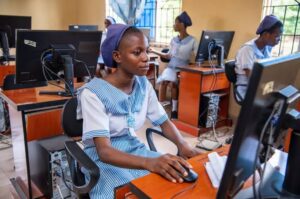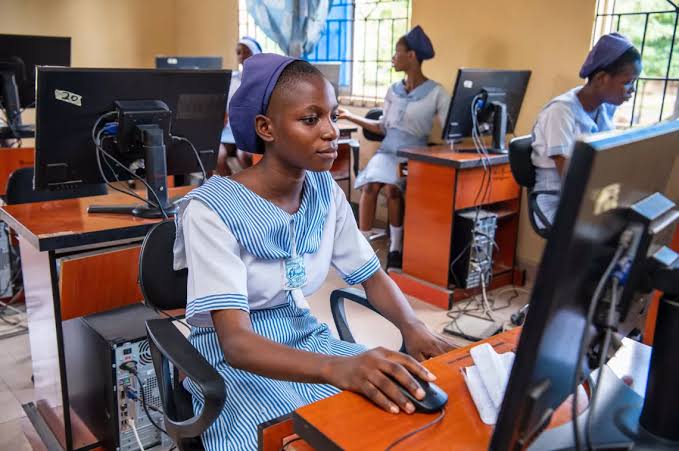In a bid to bridge the gap in educational accessibility and enhance learning outcomes, the Nigerian government has unveiled a new digital learning platform designed to provide quality education to students across the country. This initiative is part of a broader strategy to leverage technology in addressing the numerous challenges faced by Nigeria’s educational sector, including inadequate infrastructure, insufficient teaching staff, and regional disparities in educational quality.

The digital platform, which was officially launched by the Ministry of Education, offers a wide range of educational resources and courses tailored to meet the diverse needs of Nigerian students. From primary to secondary levels, the platform provides a comprehensive suite of learning materials, including interactive lessons, videos, quizzes, and assignments. The content is designed to align with the national curriculum, ensuring that students can continue their education seamlessly, irrespective of their geographic location.
“We are committed to making quality education accessible to all Nigerian children, regardless of where they live,” said Adamu Adamu, Nigeria’s Minister of Education, during the launch event. “This digital platform is a major step towards achieving educational equity in our country. It provides an opportunity for every student to learn at their own pace, with resources that are tailored to their specific needs.”
While the launch of the digital learning platform is a significant milestone, it also highlights the ongoing challenges related to digital access in Nigeria. With only about 40% of Nigerians having access to the internet, there are concerns that many students, particularly those in rural and underserved communities, may still face difficulties accessing the platform.
To address these concerns, the government has announced plans to roll out internet connectivity initiatives in underserved areas, aiming to provide affordable internet access to students and teachers. This includes partnerships with telecommunications companies to expand broadband coverage and reduce data costs. Additionally, the government is exploring alternative methods, such as offline content access and mobile-friendly versions of the platform, to ensure that students with limited internet access can still benefit.
The introduction of the digital learning platform is part of Nigeria’s broader educational reform agenda, which seeks to modernize the education system through the integration of technology. By providing digital tools and resources, the government hopes to enhance both teaching and learning experiences, making education more engaging and interactive.
Experts have praised the initiative, noting that technology can play a pivotal role in addressing some of the long-standing issues in Nigeria’s education sector. According to Dr. Olufunke Amobi, an education technology expert, “Digital platforms can help overcome many barriers in education, such as lack of access to quality teachers and educational materials. This initiative by the Nigerian government is a positive step towards transforming our education system for the better.”
The success of the digital learning platform will depend largely on collaboration between various stakeholders, including government agencies, private sector partners, educational institutions, and civil society organizations. To this end, the Ministry of Education has called for partnerships to enhance the platform’s content and expand its reach.
In addition, there are plans to incorporate features that promote interactive learning and foster collaboration among students and teachers. These features include virtual classrooms, discussion forums, and real-time feedback mechanisms, all designed to create a dynamic and inclusive learning environment.
As Nigeria continues to grapple with the challenges of providing quality education to all its citizens, the launch of the digital learning platform represents a forward-thinking approach that leverages technology for social good. By improving access to educational resources and ensuring that every child has the opportunity to learn, the government is taking important steps toward achieving the United Nations Sustainable Development Goal of quality education for all.
However, the road ahead is not without its challenges. Ensuring that the platform reaches the most marginalized communities and effectively addressing the digital divide will be crucial to its success. As the platform begins to roll out across the country, all eyes will be on its impact and the extent to which it can transform Nigeria’s educational landscape.
With continued commitment and collaboration from all sectors, there is hope that this digital revolution in education will not only improve access but also enhance the quality of learning for millions of Nigerian students. The digital learning platform, therefore, stands as a testament to Nigeria’s resolve to harness the power of technology in shaping a brighter future for its children.




